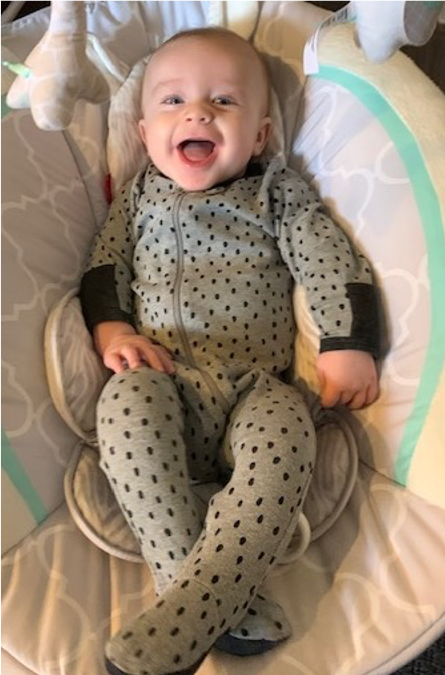Prior to COVID-19
Life before COVID-19 in some ways seems a lifetime ago, but it was less than two weeks ago that research, work, and life in general were running smoothly. I was dropping my son off at daycare, going to work every day, and able to buy toilet paper whenever I wanted.
I was finally starting to make some progress on my project trying to find new treatments for the rare pediatric lung cancer, Pleuropulmonary Blastoma, or PPB. Due to its rarity, it hasn’t been possible to do a randomized clinical trial, which is the gold standard for finding out if new treatment strategies are better than the current standard of care.
One strategy to overcome this is to do pre-clinical research on cell lines and then in mice. The ability to take tumors from patients, grow them in a petri dish or a mouse, and then test drugs on them almost feels like science fiction, but it’s something we’ve been able to do with PPB cells through collaborations across the country and on our own campus.
I’m still in the early phases of this project, but I finally got some exciting preliminary data after testing over 1500 drugs at once. I was in the process of validating this data when research at UTSW came to a halt due to the coronavirus outbreak.
Monday, March 16th – social distancing begins
In early March 2020, things were still running smoothly, but like everyone, I was anxiously monitoring the situations in China, Iran, and Italy. Drastic measures were finally slowing down the spread of the new coronavirus in Asia, but it was just starting its rampant spread through Iran, Italy, and the rest of the world. It took a while for this to sink in that this wasn’t just “another flu” and then the reports of overwhelmed health care systems in Italy really started to show just how serious the situation was.
On Monday the 16th, research had to be put on hold to limit the number of people everyone at UTSW was coming in contact with. Fortunately, I didn’t have to worry about losing all the progress I had made over the past 7 months. I was able to freeze my cell lines, and when it is safe to return to campus, I’ll be able to thaw the cells and resume my validation studies to try to find better treatment strategies for PPB. But I had to change up my research plan and put this project aside for now.
Working from Home
With my main research project on hold, I’ve had to pivot my research focus. Fortunately, I’ve had a clinical project that I’ve slowly been working on alongside my PPB cell line project.
Anaplastic Sarcoma of the Kidney, or ASK, is a recent addition to DICER1 Syndrome, a cancer predisposition syndrome. While trying to find the cause for PPB, researchers noted there were other rare tumors that ran in the families with PPB (and in the same patients!). In 2009, the genetic cause of PPB was found to be mutations in the microRNA processing enzyme, DICER1. Soon after, researchers found DICER1 mutations within those other rare tumors so they were all included under the umbrella of DICER1 syndrome.
A recent addition to this syndrome is ASK, which in many aspects, seems to be PPB that occurs in the kidney. ASK was only recognized as recently as 2007, so very little is known about it. Most of the case reports that exist today are trying to get people to better recognize ASK so that patients have the correct diagnosis.
However, there is currently no standard way to treat ASK. My goal is to assemble all that we know about the clinical behavior of ASK, investigate just how aggressive it is, and hopefully be able to offer some guidance on how ASK should be treated going forward. As ASK is recognized more and more, we will compile more information on how it is responding to these treatments to guide future therapy.
In addition to my research at home, I continue to have my weekly Pediatric Hematology/Oncology clinic. We’re balancing the need to limit the number of patients coming to clinic to decrease the risk for spreading the virus, while also making sure we’re providing the care our patients need. I believe it is still too early in the US to tell how things are going to go with our healthcare system, but hopefully with good social distancing, we can slow the spread of COVID-19 before it overwhelms our hospital system. As a pediatrician, I’m not currently on the “front lines”, but I’m doing my best to stay healthy and ready to help if/when the time comes.
Lastly, working from home has allowed me to spend more time at home with my son so that I can limit his exposures at daycare right now. I’m grateful for the ability to do this, since my wife is still working at the hospital as a nurse. I take my hat off to all the stay-at-home parents, teachers, and daycare workers. It’s a lot of work, but, his smile makes everything worth it :)
Stay safe and healthy everyone!
Peter Schoettler, MD
Pediatric Hematology/Oncology Fellow
